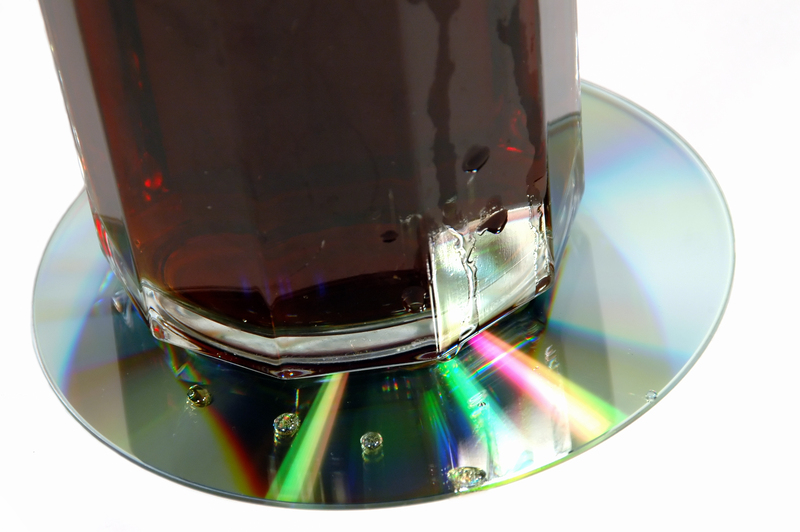Discover More in Less: The Minimalist Lifestyle Explained
Less can truly be more. In an age of abundance, where acquiring more has become the norm, the idea of living minimally is both refreshing and revolutionary. What does minimalist living mean? How can embracing a minimalist lifestyle help you find more peace, contentment, and purpose? In this comprehensive guide, we'll uncover the essence of minimalism, offer practical tips for adopting it, and help you discover how choosing less can let you experience so much more.
What Is Minimalism?
Minimalism is far more than simply decluttering your home. At its core, minimalism is the intentional promotion of what you value most and the removal of everything that distracts from it. It's about finding freedom, clarity, and satisfaction by focusing on what truly matters.
Minimalist Lifestyle Explained
A minimalist lifestyle advocates for living with fewer material possessions and commitments, creating space--physically, mentally, and emotionally--for the things that add genuine value. Minimalists seek to live deliberately. They prioritize time, relationships, and experiences over accumulation.
- Intentional living -- Every decision, from home decor to purchases, is made deliberately.
- Reducing excess -- Removing clutter from physical and digital spaces.
- Emphasizing quality -- Focusing on fewer, but more meaningful, belongings and experiences.
The Benefits of a Minimalist Lifestyle
Embracing a minimalist lifestyle doesn't mean deprivation. Instead, minimalism allows you to discover more fulfillment in life. Here's how:
1. Increased Mental Clarity
By reducing clutter, our minds become less overwhelmed. Minimalism brings a newfound focus, helping you direct your mental energy towards what matters most.
2. Reduced Stress
Messy surroundings can generate anxiety. Simplifying your environment provides a calming effect, boosting your well-being and peace of mind.
3. More Time & Freedom
Owning less means less cleaning, organizing, and maintaining. A simple lifestyle gives you back hours to spend on meaningful activities and relationships.
4. Improved Finances
Buying less means saving more. Minimalists spend only on necessary, valuable things, which leads to better money management and long-term financial security.
5. Environmental Impact
A minimalist lifestyle is inherently eco-friendly. Consuming less reduces waste and promotes sustainability.
6. Stronger Relationships
When material distractions fall away, our attention shifts to people and experiences. This results in richer, more fulfilling connections with those around us.
Common Misconceptions About Minimalism
Despite its growing popularity, many myths surround minimalist living:
- Minimalism is about depriving yourself.
Truth: Minimalism is about removing what doesn't serve you--not giving up what you love. - Minimalists can't own nice things.
Truth: Minimalists prioritize quality over quantity. Owning something 'nice' is encouraged, as long as it serves your life. - You must have an all-white, empty home.
Truth: Minimalism is personal. Your space should reflect your own values and aesthetic. - Minimalism is only for singles or young people.
Truth: Anyone--families, retirees, professionals--can benefit from a minimalist lifestyle.
Minimalism at Home
Your home is the foundation of your lifestyle. Transforming your living space is often the first step towards embracing minimalism in everyday life.
Decluttering: The First Step
Start by systematically evaluating every item in your home. Ask yourself:
- Do I use this regularly?
- Does it contribute value to my life?
- Could I do without it?
Tips for a Minimalist Home
- Declutter in stages: Tackle one room or category at a time (e.g., clothes, books, kitchenware).
- Quality over quantity: Keep only items you love or use often.
- Organize efficiently: Store essentials neatly and logically, making daily life simpler.
- Adopt the 'one in, one out' rule: For every new item brought into the house, let another go.
Remember: The key isn't perfection, but progress towards a more intentional lifestyle.
Developing a Minimalist Mindset
Minimalism isn't just about possessions--it's also about mindset. To live a simpler, more focused life, embrace these core principles:
- Awareness: Regularly assess your goals, needs, and desires.
- Intentionality: Make conscious decisions about what you own and how you spend your time.
- Contentment: Learn to appreciate what you already have, rather than constantly chasing more.
- Purpose: Align your environment and habits with your personal values and long-term aspirations.
Minimalist living means saying 'yes' only to what aligns with your purpose and breathes meaning into your days.
Minimalism and Financial Freedom
A benefit often overlooked is the financial freedom that stems from minimalist habits. When you spend thoughtfully, you build a safety net and reclaim control over your financial destiny.
How Minimalism Helps Your Wallet
- Intentional purchases: Avoid impulse buying--cutting back on wasted money.
- Fewer bills: Minimalist living means less spent on maintenance, utilities, and storage.
- More savings: Redirecting funds towards investments, travel, or meaningful experiences.
- Less debt: By consuming less, you reduce the temptation to buy on credit.
Gain financial peace of mind by adopting minimalist money habits--it's a powerful step toward long-term stability.
Minimalist Fashion & Capsule Wardrobes
Minimalism also extends to your wardrobe. A capsule wardrobe is a collection of versatile, high-quality clothing pieces you love to wear.
Advantages of a Minimalist Wardrobe
- Simplified choices: Save time and energy each morning by eliminating decision fatigue.
- More confidence: Wear only what fits and flatters you.
- Lower expenses: Fewer, better clothes reduce replacement costs over time.
- Environmental benefits: Reducing clothing waste and embracing sustainable brands.
Building a minimal wardrobe releases you from the endless fashion cycle and lets you focus on personal style.
Digital Minimalism
Our digital lives have become as cluttered as our homes, but digital minimalism can help. It's about using technology intentionally, to serve rather than overwhelm you.
Practical Ways to Simplify Digital Life
- Declutter devices: Delete unused apps, files, and emails regularly.
- Single-task: Avoid multitasking by focusing on one digital activity at a time.
- Limit notifications: Turn off non-essential alerts to preserve attention.
- Curate social media: Follow only accounts that inspire or support your goals.
- Set boundaries: Designate screen-free times or zones to reconnect offline.
Embracing digital minimalism can dramatically improve focus, creativity, and overall well-being.
Key Takeaways: Living a Minimalist Lifestyle
- Minimalism is about intentional living--choosing less, but better.
- Adopting a minimalist lifestyle can lead to mental clarity, financial freedom, and deeper relationships.
- It isn't about deprivation or strict rules, but about crafting a life centered on your values.
- Minimalism can be applied to your home, finances, wardrobe, digital life, and mindset.
Discovering more in less means uncovering happiness, meaning, and freedom by living simply. Each step toward simple living is a step toward the life you truly want.
Frequently Asked Questions About Minimalist Living
- How do I start living a minimalist lifestyle?
Begin by decluttering one area of your home, focusing on keeping only what you use or love. Gradually apply minimalism to your schedule, finances, and digital life. - Is minimalism just about getting rid of stuff?
No, it's about deciding what's truly valuable and eliminating the excess--not just possessions, but also obligations and distractions. - Can families practice minimalism?
Absolutely! Minimalism is flexible. Families can experience powerful benefits by creating intentional routines and valuing time together over things. - Is minimalism expensive?
Not at all! In fact, it saves money over time by reducing unnecessary purchases and expenses.
If you're ready to discover more by owning less, focus on what matters and design your life intentionally. The minimalist lifestyle is a powerful, practical path to lasting fulfillment.
Final Thoughts: Discover More in Less
Choosing a minimalist approach doesn't mean sacrificing joy. It means redefining joy on your own terms. By simplifying your space, your decisions, and your commitments, you open your life to more clarity, peace, and purpose. Minimalism is an ongoing journey--one that's unique for every individual or family.
If you're looking to embrace a minimalist lifestyle, start small--and keep the focus on what brings you true value. In doing so, you'll truly discover more in less.

